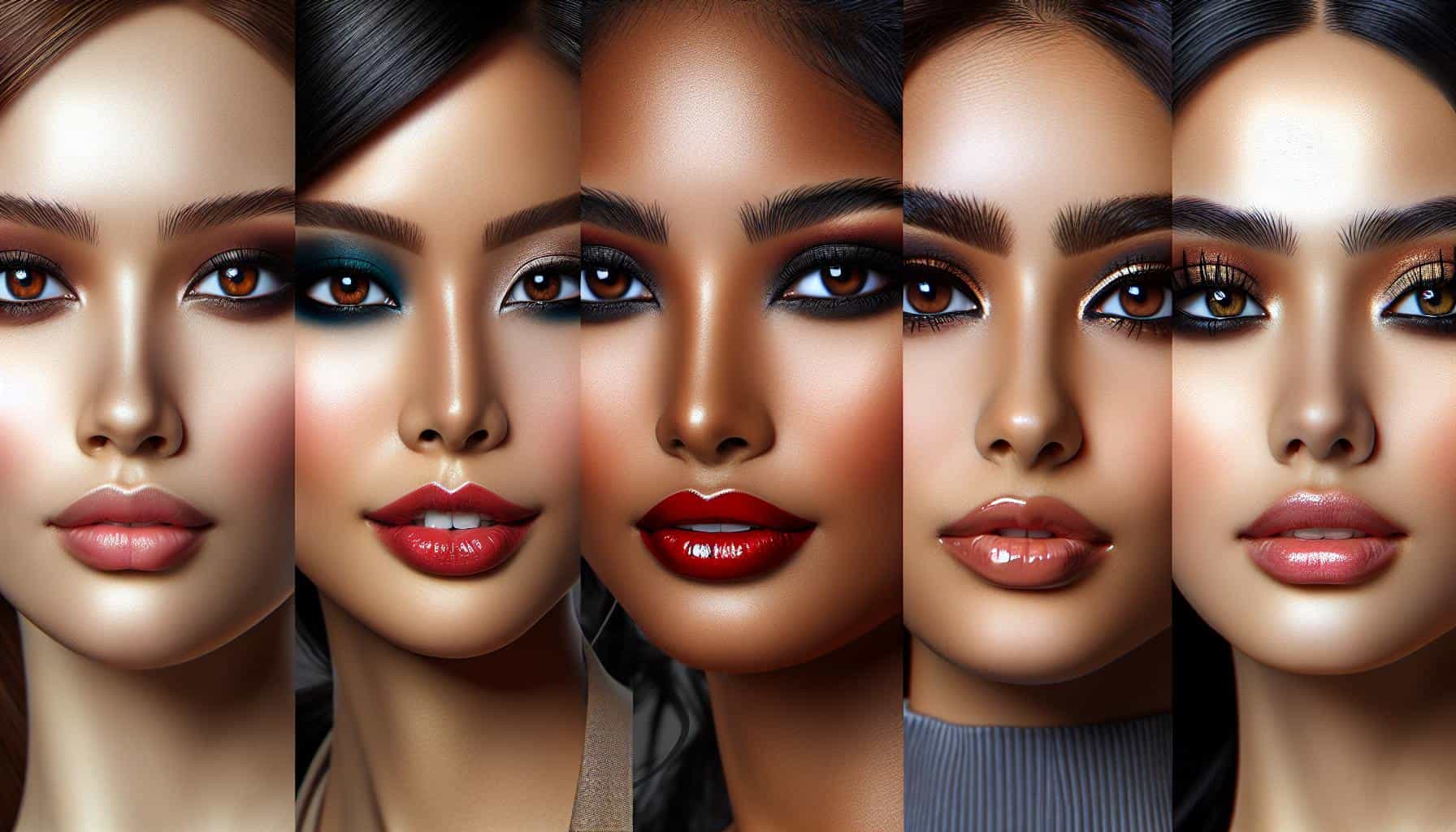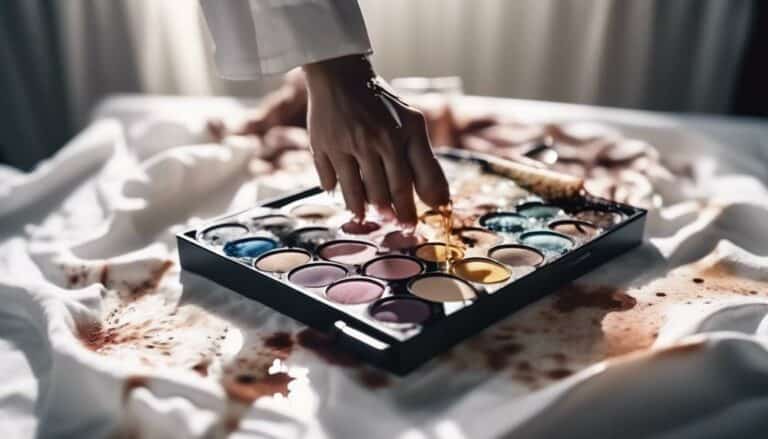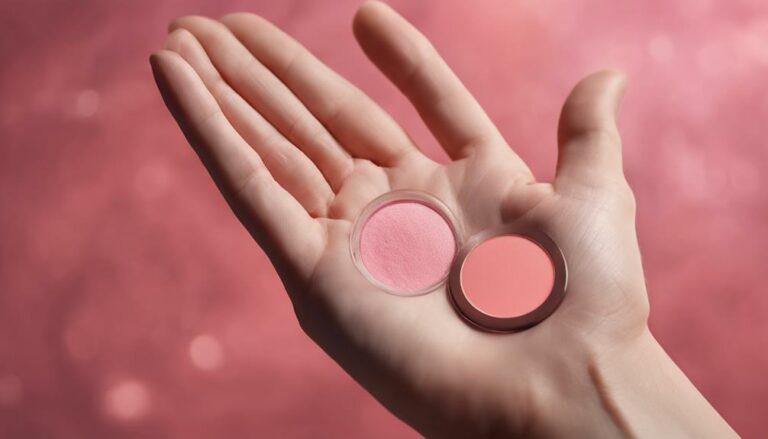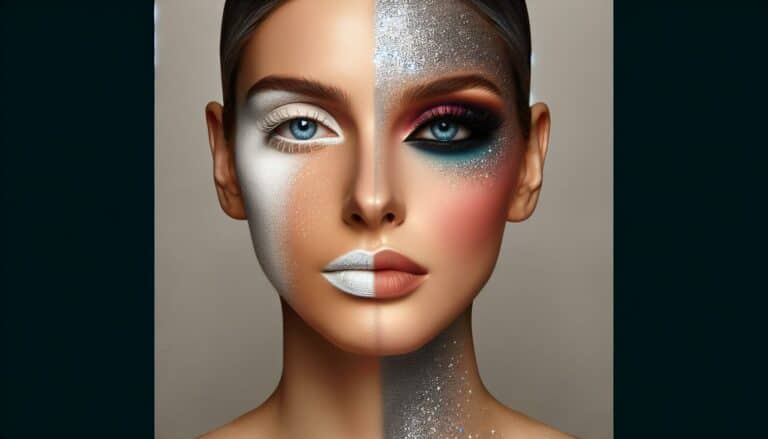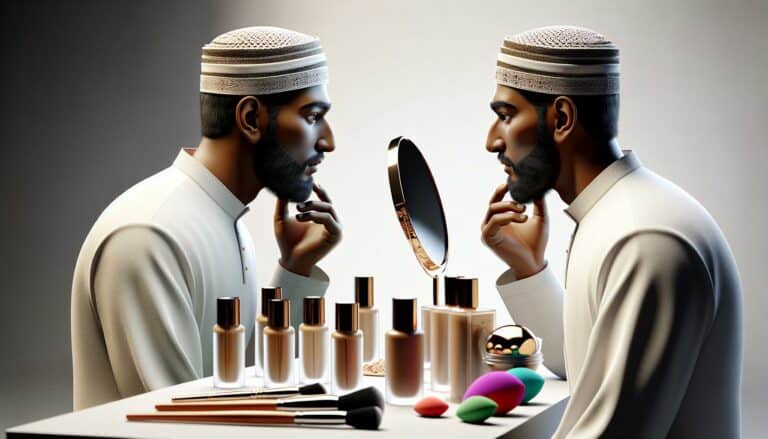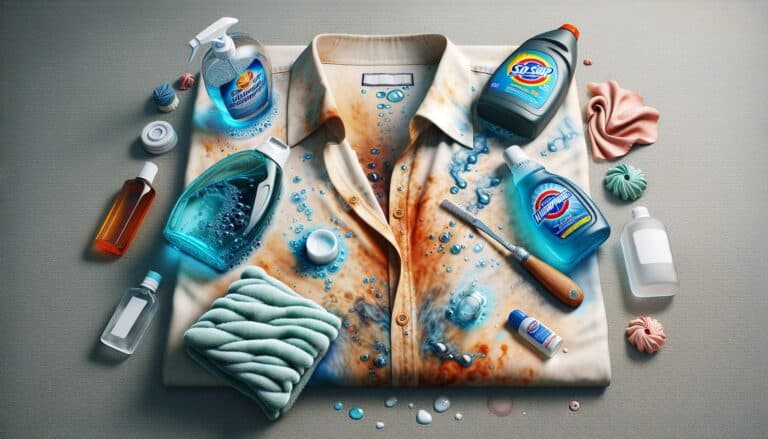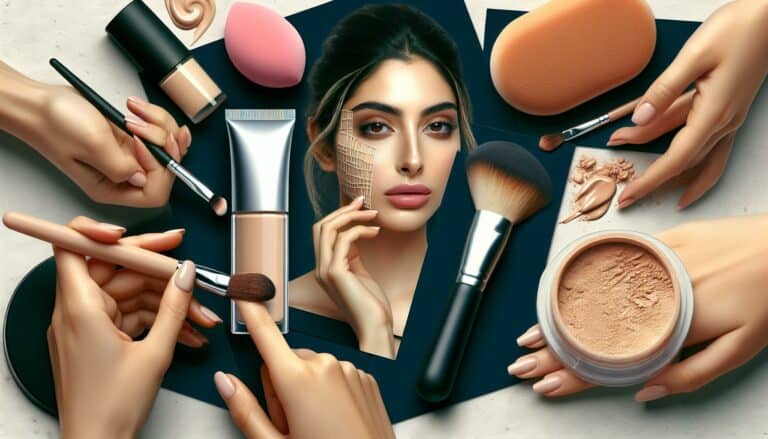Why Women Wear Makeup: Empowerment, Confidence, & Cultural Roots
Enhancing Features
When you think about makeup, the idea of Enhancing Features often comes to mind. It’s not just about covering imperfections; it’s a form of self-expression that accentuates your best features. Whether it’s your eyes, lips, cheekbones, or skin, makeup can highlight what you love most about yourself.
Makeup has the power to transform how you see yourself and how others perceive you. With the right techniques, you can bring out your natural beauty or even create a completely new look. It’s all about choice and creativity.
Here is a simple breakdown of what women tend to focus on when enhancing their features with makeup:
| Feature | Percentage of Women Who Enhance It |
|---|---|
| Eyes | 70% |
| Lips | 60% |
| Complexion | 50% |
| Eyebrows | 40% |
This quote encapsulates the essence of using makeup to enhance features. It’s not just about the physical appearance; it’s about how it makes you feel. When you feel beautiful and confident, it shows.
Bold eyeshadows, vibrant lip colors, and flawless foundations are tools at your disposal. They allow you to highlight your eyes, enhance your smile, or exhibit a radiant complexion. Remember, makeup isn’t about hiding who you are; it’s about showcasing your best self. Whether you’re aiming for a natural look or something more dramatic, the choice is yours.
Boosting Confidence
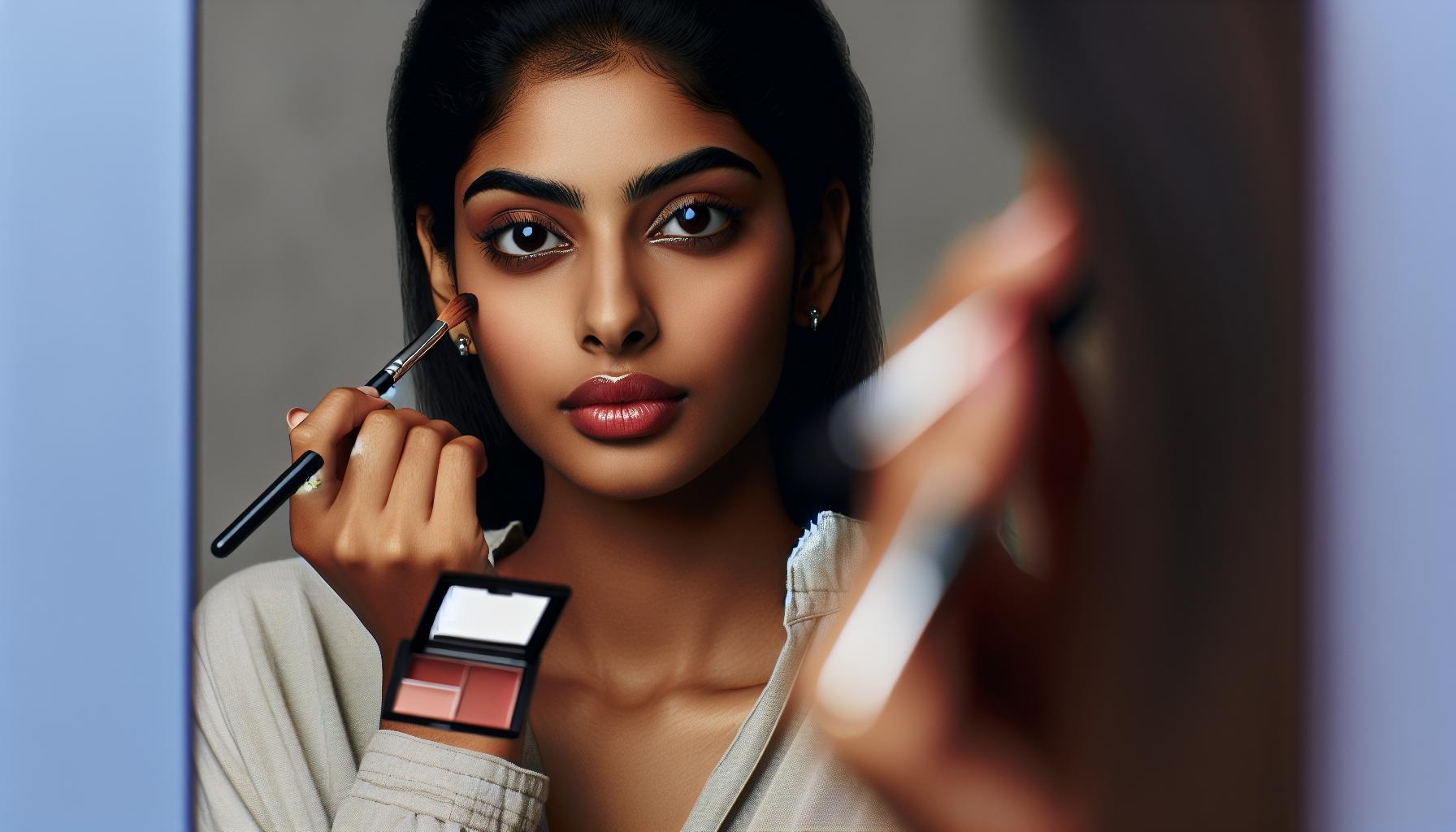
In exploring the myriad of reasons you might reach for your makeup bag every morning, one pivotal factor stands out: confidence. It’s not just about the colors or the brands you use, it’s about how makeup makes you feel. When you swipe on that perfect shade of lipstick or perfect your eyeliner, you’re not just altering your appearance; you’re boosting your self-assurance.
A significant number of women report feeling more confident and prepared to tackle their day with makeup. It’s not mere vanity; it’s a tool for empowerment. Whether you’re heading to a job interview or simply running errands, makeup can act as your armor against the world’s scrutiny.
Consider this perspective:
“Makeup is not a mask that covers up your beauty; it’s a weapon that helps you express who you are from the inside.”
This sentiment captures the essence of why makeup is so intertwined with confidence. It’s about choice, identity, and, most importantly, how you perceive yourself.
Here’s how makeup enhances confidence according to a survey:
| Feature Enhanced | Percentage of Women |
|---|---|
| Eyes | 70% |
| Lips | 60% |
| Complexion | 50% |
| Eyebrows | 40% |
As you can see, the eyes and lips are the top features women choose to highlight, possibly because these features play a significant role in communication and expression.
In essence, makeup does more than beautify; it empowers. By enabling you to highlight your best features, it offers a boost not only to your appearance but to your confidence as well. Through this lens, makeup is seen not as a tool for concealing flaws but as a means for showcasing your true self.
Self-Expression and Identity
When you think about makeup, it’s not just about looking good. It’s a powerful form of self-expression. Just like the clothes you choose or the music you listen to, makeup allows you to showcase your personality and what you stand for. Whether you’re feeling bold and adventurous with a vibrant eyeshadow or sophisticated and polished with a classic red lip, every choice is a reflection of who you are at that moment.
Makeup isn’t just skin-deep; it’s deeply intertwined with personal identity. It can be a tool to highlight the features you love about yourself and maybe even discover new aspects of your identity.
“Makeup is the most incredible tool for self-expression. It’s not about covering up, but about revealing who you are.”
Here’s an interesting stat:
| Feature Enhanced | Percentage of Women |
|---|---|
| Eyes | 70% |
| Lips | 64% |
| Complexion | 62% |
| Eyebrows | 58% |
This table shows just how many women lean into makeup to highlight their favorite features. It’s not about concealing—it’s about boldly expressing and owning your identity.
Whether it’s adding a little brightness to your face on a gloomy day or experimenting with different looks for various moods, makeup serves as an armory. With every stroke, dab, and blend, you’re not just applying products; you’re crafting your image. This process is incredibly personal and unique to everyone. Each day offers a new canvas, a new opportunity to express who you are or how you’re feeling. This constant evolution and play are what make makeup so much more than cosmetic—it’s a form of personal narrative.
Historical Significance of Makeup
When exploring the question of why women wear makeup, it’s crucial to take a journey back in time. Makeup hasn’t always been about the latest beauty trends or highlighting one’s features. Its roots are deeply embedded in history, serving purposes that ranged from ritualistic practices to symbols of social status.
Thousands of years ago, makeup was not just a tool for enhancing beauty. Ancient Egyptians used it for protection against the sun and to ward off evil spirits. They believed heavily in the spiritual and protective powers of makeup, especially around the eyes, which is why eye makeup was not only common but necessary. Fast forward to the Elizabethan era, and makeup took on a different role, symbolizing wealth and nobility. Pale skin was in vogue, indicating that one did not work in the sun, a privilege reserved for the upper echelons of society.
In different cultures, the materials and methods used for makeup varied, emphasizing its diverse historical significance. Here’s a snapshot of historical makeup usage across cultures:
| Culture | Time Period | Common Makeup Use |
|---|---|---|
| Ancient Egypt | 4000 BCE – 30 BCE | Eye makeup for spiritual protection |
| Elizabethan England | 1558 – 1603 | Lead-based face powder to indicate wealth |
| Imperial China | Dynasties (206 BCE – 1912 CE) | Rouge made from safflower for cheeks and lips |
“Makeup has always been a reflection of cultural values and societal norms.” – Unknown
Understanding the historical significance of makeup illuminates its evolution. From rites of passage in some cultures to the bold fashion statements in others, makeup’s roles are as varied as the societies that embraced them. This historical perspective provides a profound appreciation for makeup, not just as a means to enhance one’s appearance, but as a dynamic tool that has served multiple purposes throughout human history.
Social and Cultural Influences
In the realm of beauty and cosmetics, Social and Cultural Influences play a pivotal role in shaping why you might choose to wear makeup. It’s not just about personal preferences; it’s about the society you live in and the cultural norms that define it. From magazine covers to social media influencers, the images and ideals presented can significantly impact your views on beauty. These platforms often set high and sometimes unrealistic beauty standards, making makeup a tool to achieve a certain societal ideal.
Social media, in particular, has a strong influence on makeup trends and why you might feel compelled to wear makeup. Platforms like Instagram and YouTube showcase endless beauty tutorials, promoting looks that vary from the natural to the extravagant. Influencers often wield the power to shift perceptions of beauty, introducing new norms that rapidly gain popularity worldwide. The table below illustrates the rise in makeup tutorial views on these platforms over recent years:
| Year | Makeup Tutorial Views (in billions) |
|---|---|
| 2018 | 4.5 |
| 2019 | 6.0 |
| 2020 | 7.3 |
| 2021 | 8.9 |
Cultural backgrounds also deeply influence makeup usage. In some cultures, makeup is used in ceremonies and rituals, imbuing it with a sense of tradition and identity. For instance, in Japan, the Geisha’s makeup is rich with history and symbolism, far beyond mere aesthetic appeal.
“Makeup is a language as much as it is an art. It tells a story of who we are and the societies we live in.”
Remember, while makeup can be a form of self-expression, it’s also a reflection of the Social Constructs and historical contexts that shape your views on beauty and self-worth.
Conclusion
Diving deeper into the nuances of why women wear makeup, let’s consider the psychological benefits. It’s not just about external appearance; there’s an intrinsic value in the act itself. Studies have shown that applying makeup can significantly affect how you feel about yourself, boosting self-esteem and confidence.
Imagine starting your day by taking the time to focus on yourself. This ritual can be a form of self-care, a moment to connect with your inner self before facing the world.
Here’s a quick look at the statistics underscoring the impact of makeup on confidence:
| Aspect | Percentage of Women Who Agree |
|---|---|
| Boosts Confidence | 70% |
| Enhances Mood | 63% |
| Feels Empowering | 53% |
Makeup is more than just cosmetic; it’s a tool for empowerment. When you swipe that lipstick or perfect your winged liner, you’re not just altering your appearance. You’re setting the tone for how you approach your day.
“Makeup is not a mask that covers up your beauty; it’s a weapon that helps you express who you are from the inside.” —Michelle Phan
Beyond personal benefits, makeup also plays a significant role in cultural identity. From bold, colorful looks that celebrate heritage to subtle enhancements that align with contemporary aesthetics, makeup serves as a bridge between tradition and modern expression.
So, whether you’re donning a full glam look for a night out or a minimalist approach for a day at the office, remember that your makeup choices are a reflection of your unique personality and journey.

